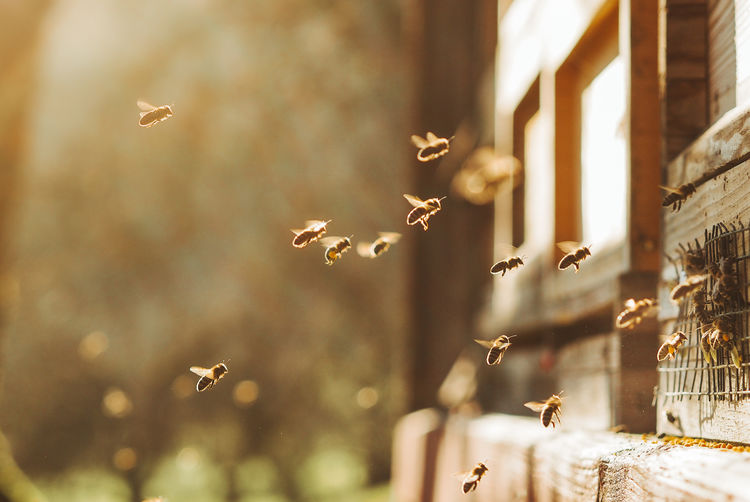STEM In The Community
Hive Mind

Sure, we all like the sweet stuff. But did you know that bees are critical members of our ecosystem? In fact, our food supply depends on them.
Here's why: bees are pollinators. That is, as they go from flower to flower collecting nectar and pollen to feed themselves, they also just happen to move pollen from plant to plant. Which leads to fertilization. And that's essential for successful fruit and seed production.
You have probably heard the worrisome news: bee colonies have been dying off in recent years. Scientists around the world are working to figure out why.
Learning about bees and their colonies has always been fascinating. For example, bees are considered a "superorganism"––they thrive only as a colony, individuals don't live long. Bees do a "waggle dance" to communicate things like where the good nectar is. Swarming is a good thing, a way to reproduce the colony. And all "worker bees" are females.
From a STEM point of view, we think knowing about bees is more than amazing. It's important, too. Knowing more is going to be the key to solving the complex issues affecting bee health and survival.
A trip to the Cape Cod Museum of Natural History is a good starting point for anyone who wants to start learning about honeybees. The Museum has a permanent "live observation" beehive and exhibit on the main level—indoors, so you can view the bees there all year round.
If you're intrigued, you'll want to stay tuned to the Museum's honeybee program come summer. In June, July, and August, their beekeeper, George Muhlebach opens the outdoor working hives to teach more about what the bees are doing during those most active times of year.
About that sweet stuff: the Museum sells honey from the hives each fall.